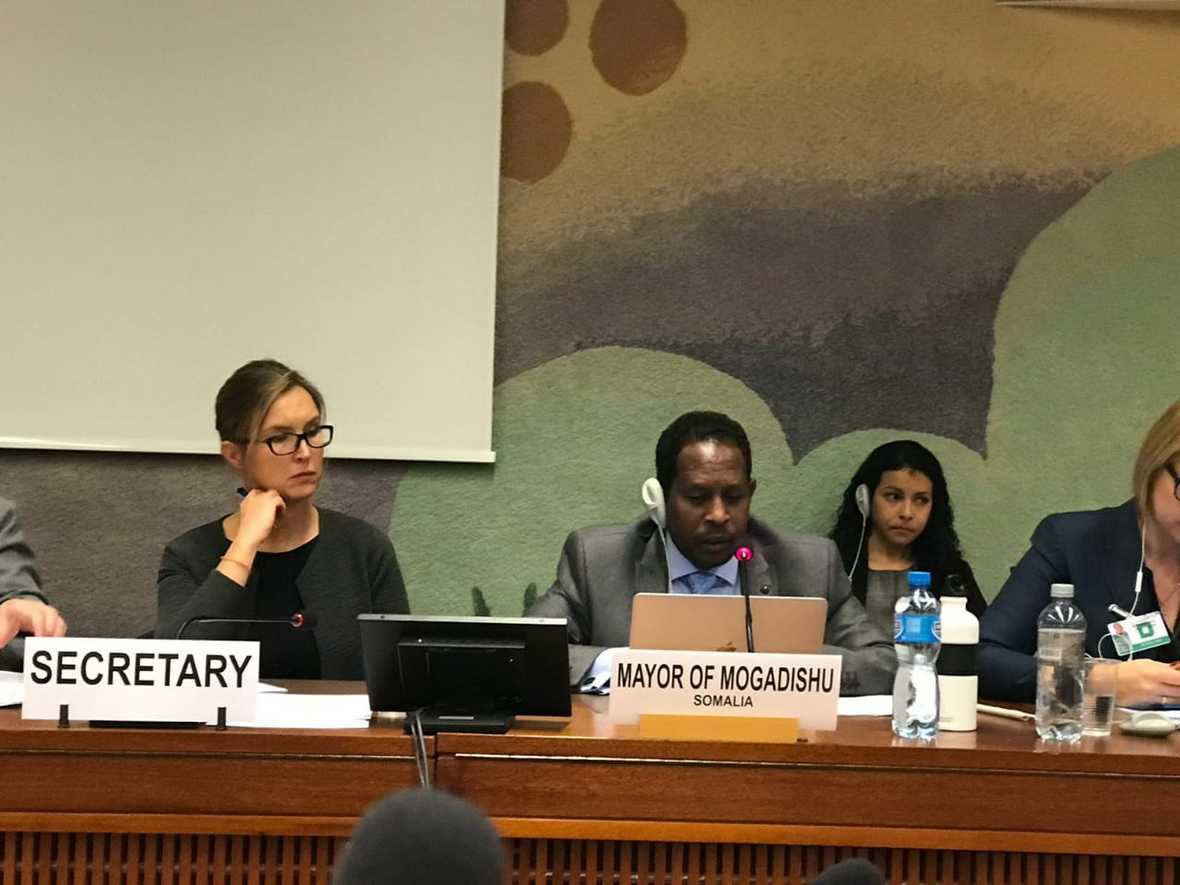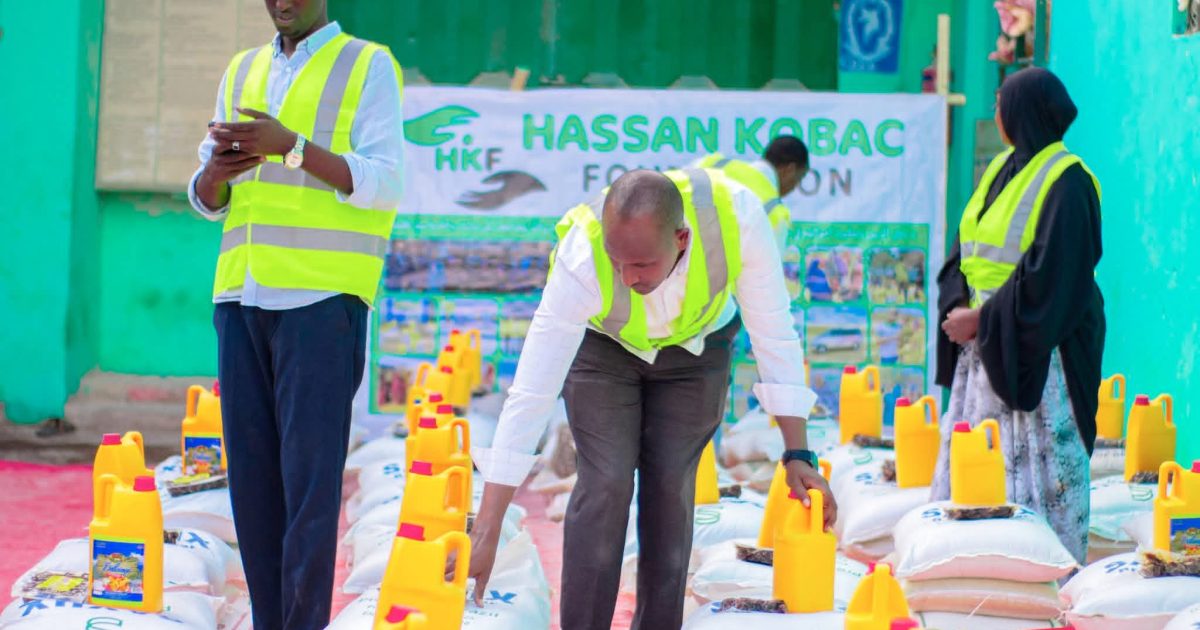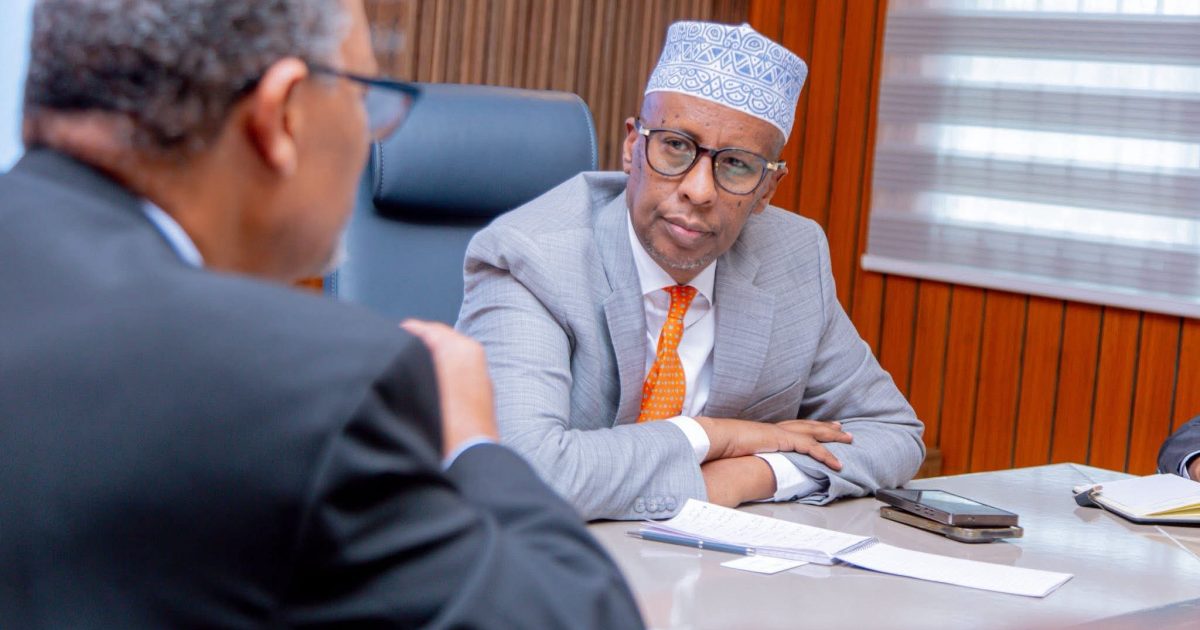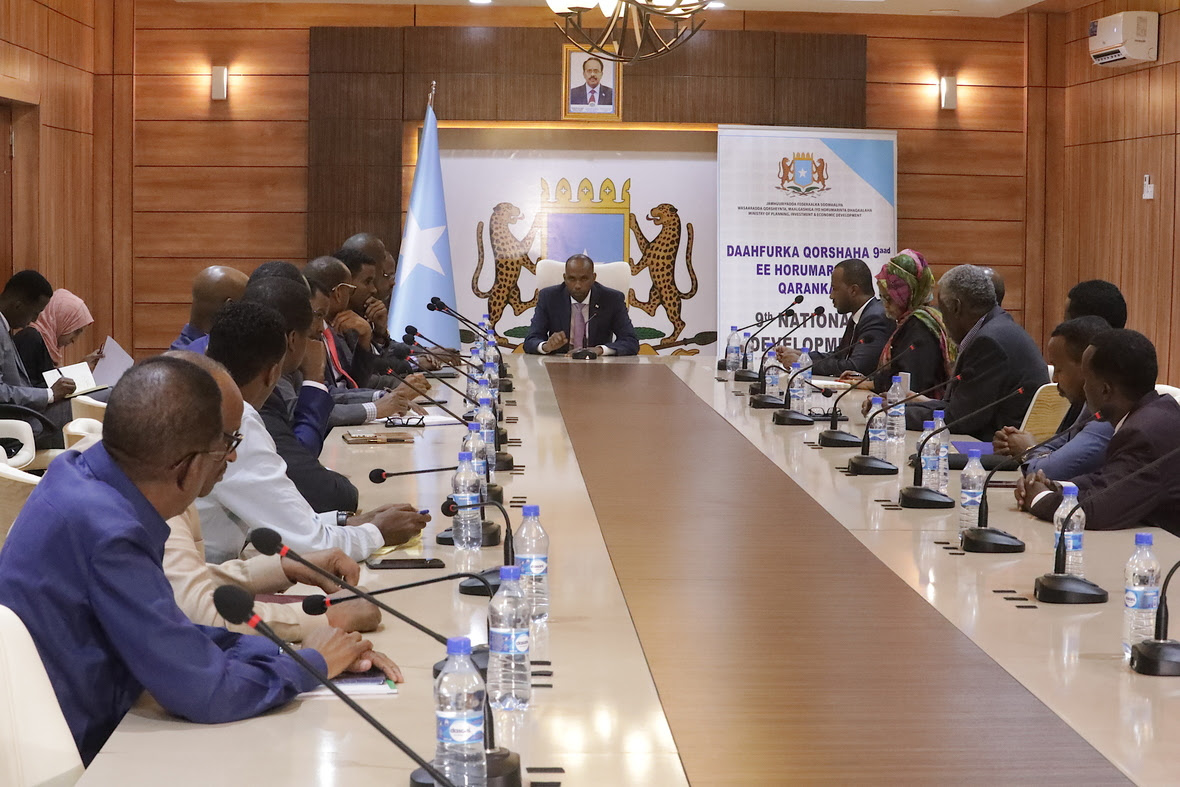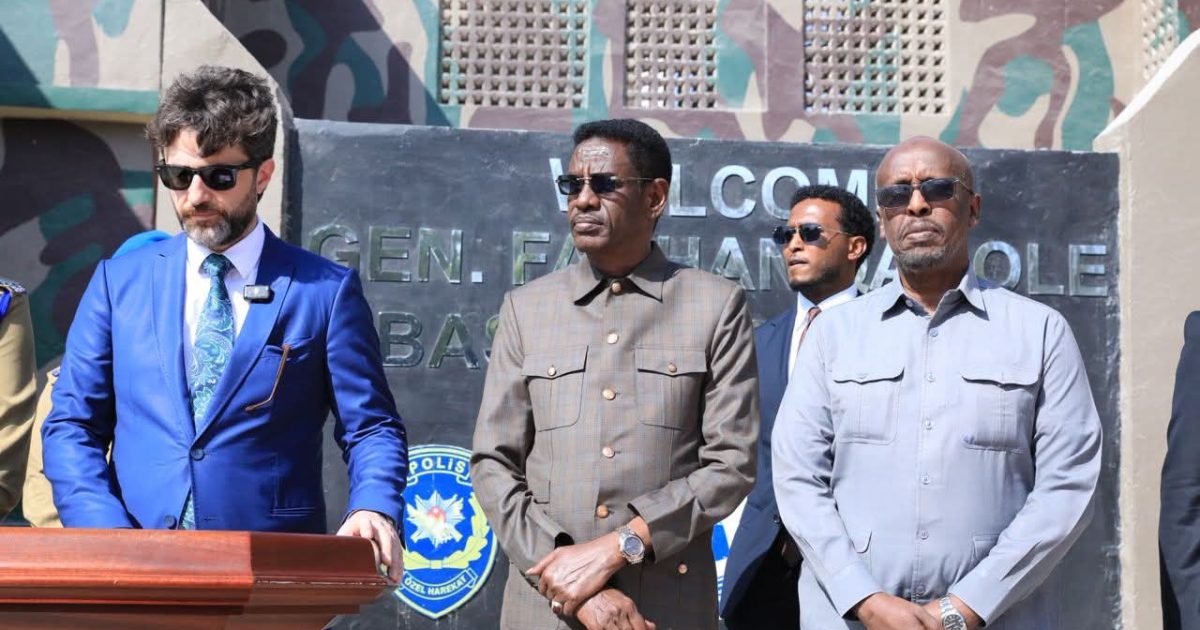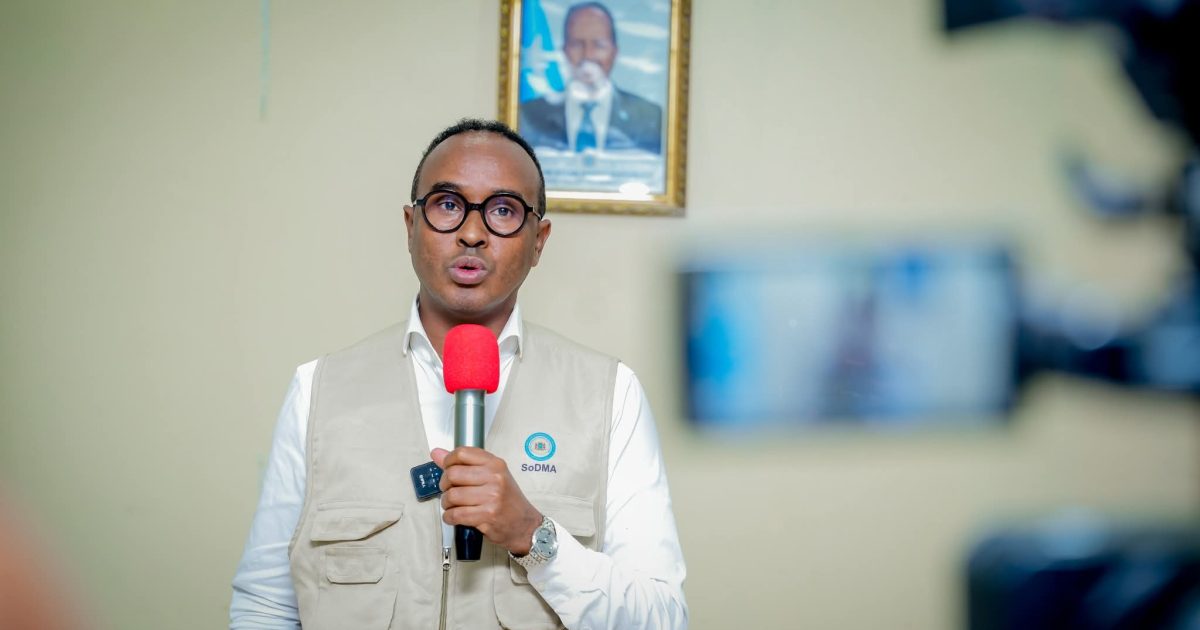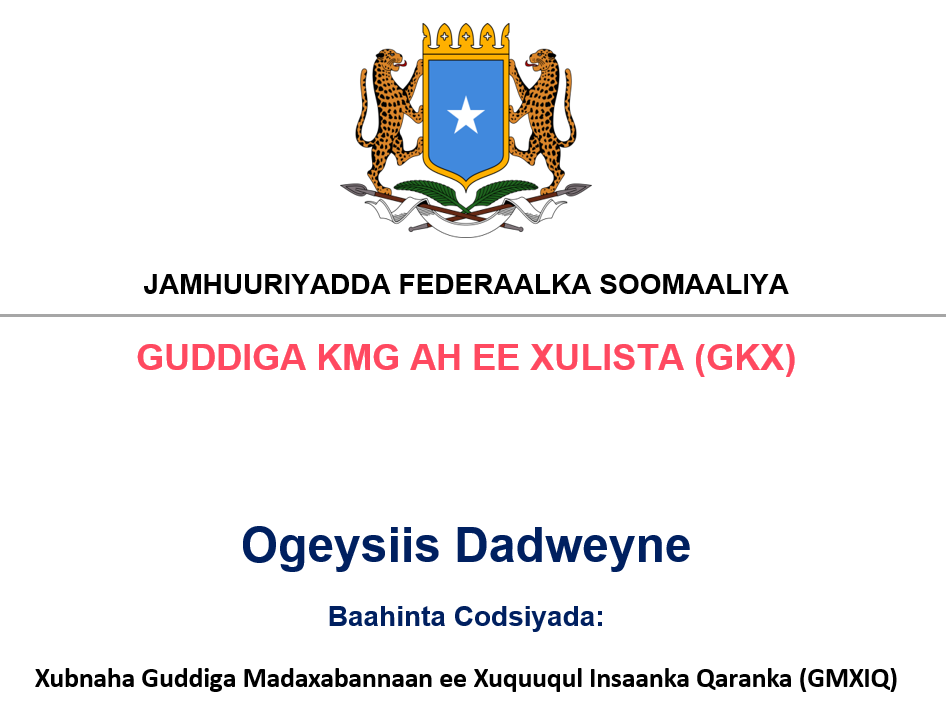Speech of H.E. Abdirahman Omar Osman (Eng Yarisow),
Mayor of Mogadishu & Governor of Benadir Region
High Commissioner’s Dialogue on Protection Challenges
Geneva
Wednesday, 19 December 2018
Bismillahi Rahmani Rahiim,
Co-Chairs, Excellencies, distinguished participants, ladies & gentlemen;
I am very pleased to attend this round table of the “High Commissioner’s Dialogue on Protection Challenges – “Protection and solutions in urban settings: engaging with cities” ”, to establish solidarity with officials and colleagues who have similar challenges to those we face in Mogadishu, Somalia, and to meet with actors who are seeking to prevent, prepare for and respond to humanitarian crisis situations in urban settings.
As I have just been introduced, I am Abdirahman Omar Osman, aka “Eng. Yarisow”, the Governor of the Benadir region and the Mayor of Mogadishu. I am not the Mayor of Mogadishu you may have read about in Andrew Harding’s book – known as “Tarzan” and he preceded me in this post by 4 years. Even in that short time, the challenges Mogadishu faces have increased, all be it as the country of Somalia itself continues to improve and strives to establish normal state-hood with robust institutions. While this process moves forward, Mogadishu continues to bear the brunt of the hardships as each disaster, whether “natural” or the consequences of the conflict, drives citizens away from their original locations and towards the Somali capital.
Partly as a consequence of this forced displacement, migration and partly because of the entrepreneurial expansion that is facilitated by recent developments in Somalia, the city of Mogadishu is the second fastest urbanizing city in the world (World Bank, 2018). It is a vibrant city that traditionally is host to many different communities as well as to the more recent populations who have sought its refuge.
With over 2.5 million residents consisting of local residents, internally displaced persons, refugees and former Somali refugees returning home, the city is presented with unprecedented challenges, but which we also see as “opportunities” to make it a model modern city that can integrate these diverse communities and at the same time preserve its unique historical nature.
As Mayor and Governor of this great city once referred to as the Riviera of Africa, it is my responsibility to ensure the city once again regains its beauty and glory by enhancing economic opportunities, delivering basic services, improving security and safeguarding the rights of all residents, while overcoming the enormous challenges in a post conflict fragile environment such as lack of infrastructure, lack of job opportunities for youth, security threats from terrorists. Mogadishu faces the unique challenges that no other city around the globe faces. This requires a global and collective approach from all stakeholders.
Displacement:
Conflict and famine has led to mass internal displacement across the country. Millions of Somali diaspora are scattered across the globe, 1/5th of the population are either internally displaced or are refugees in neighboring countries. Illegal migration has seen thousands of young Somalis in search of greener pastures taking dangerous and deadly routes to reaching Europe/Asia and the Americas.
Internal displacement is one of the most challenging and complex issues facing our government at all levels.
The number of internally displaced people across Somalia is now estimated to be over 2.6 million people.
There are over 2000 IDP camps reported by humanitarian actors across Somalia, and the bulk of the displacement is in the Benadir region with nearly 1000 IDP add hoc camps/settlements.
Most IDP camps are rapidly set up or extended in response to new inflows of people and majority are overcrowded, insecure and lack basic amenities such as clean save water and health services.
Less then 20% of children have access to basic education.
Unemployment is rampant and in most cases much higher than the national average rate.
A profiling survey conducted in 2016 suggested that the IDP populations are consistently more vulnerable, experiencing a lower standard of living than the host communities and economic migrant populations living in the same informal settlements.
Protection issues are of particular challenge. The region has the largest evictions rates in the country.
Figures collected by humanitarian partners suggest that up to 293,000 people were evicted from their settlements, whether lawfully or not, this year. It is important to note that In many cases, IDPs have been able to relocate somewhere else, often with the support of the municipality.
A year ago, we saw a single incident that displaced over 40,000 persons, destroyed properties, and left some with personal injuries.
My administration took swift action to appoint a fact-finding commission to examine the incident, understand the institutional gaps that led to such incident and make recommendations on way forward.
In April of this year we published comprehensive report on this particular incident with clear recommendations on curbing the high rates of evictions in the region.
With the support of EU Reinteg/UNHCR, we have established an evictions prevention and monitoring team to work with district and protection partners to mainstream evictions guidelines and frameworks.
The committee works on identifying camps/settlements at high eviction risk to prevent and mitigate impact of evictions.
Though a modest step, we are committed to ensuring the safety and protection of all vulnerable groups through stronger institutional protective mechanisms.
Disturbingly we have seen the high rates of GBV cases in the country with over 72% reported cases in the Benadir Region. This is an area in which we call on partners to assist us in strengthening relevant institutions to protect and prevent such gross violations of human rights.
Displaced women and girls face the highest burden of displacement and we seek to change coarse on this reality. Increasing protection instruments and access to justice and legal counsel is our primary focus for 2019.
Returnees and Refugees
Somali refugees, who have lived for years in neighboring countries, continue to make the decision to return home.
In total, over 120,000 have arrived since 2014. Many of these have a preference travel through or settle in Mogadishu. Some are supported to return by UNHCR and the Government, others arrive back unassisted and find their own way.
It is of particular concern to us that large numbers of returnees are now becoming IDPs themselves due to the lack of integrated services available to them.
The city of Mogadishu is also host to thousands of asylum seekers and refugees mainly from Yemen, but also from Ethiopia, Syria, Eritrea and Tanzania. In total, there are 32,747 refugees and asylum seekers across Somalia.
All these population groups have made Mogadishu their home at a time when the city is undergoing rapid growth without adequate resources to provide basic municipal services.
In this complex context, addressing the needs, safeguarding the rights, and supporting the attainment of durable solutions for diverse communities is challenging, and requires the engagement of a wide range of actors.
It also requires a comprehensive approach, addressing social-cultural, economic, and civil-political aspects in a complementary manner.
The BRA appreciates the close partnership and collaboration with UNHCR, as well as other UN agencies and local NGOs, in jointly identifying and responding to the needs, challenges and priorities of the different population groups.
One example of this collaboration is the multi-partner “REINTEG” project, which aims to identify innovative solutions for IDPs and returnees in Mogadishu through enhanced governance, employment and access to basic and protective services.
As part of this project UNHCR has been supporting the strengthening of BRA capacity on safeguarding the rights of communities related to housing, land and property, a key challenge in Mogadishu.
In addition, with the support of EU-REINTEG, BRA has established a Durable Solutions Unit whose primary role is to function as policy development, service mainstreaming, advocacy and coordination office for displacement affected communities within the administration.
The Durable Solutions Unit will work with my office to carry out a mandate to eliminate protracted displacement.
Our goal is to reverse the trend of protracted displacement and bring the number of IDPs displaced within the region to zero by 2022 with a vision of durable solutions.
The aim of the Mogadishu municipality is to ensure durable solutions for all IDPs by 2022, as stated in a draft IDP policy for Mogadishu and the Benadir region, due for release January 2019.
To show its commitment to the implementation of Comprehensive Refugee Response Framework (CRRF), the government of Somalia has applied CRRF under the National Action Plan (NAP). UNHCR has assisted the recruitment of the CRRF Advisor to the Prime Ministry’s Office. UNHCR has also been advocating for implementation of CRRF across Somalia.
The need to find durable solutions to displacement and to reintegrate Somalis who have returned to their home country have been included in Somalia’s 2017-2019 National Development Plan (NDP).
The NDP is the overarching normative framework for the implementation of durable solutions, thereby guiding the application of the CRRF in Somalia
The municipality of Mogadishu remains committed to work with federal government, international and non-governmental partners to support its IDP/Refugee and returnee policy and durable solutions for displacement affected communities in Mogadishu or ensure safety for IDPs until conditions in areas of return become conducive to durable solutions.
With funding from UNHCR, BRA rehabilitated five schools and one Technical and Vocational Education Training (TVET). The projects began in 2017 and completed in 2018. Three more schools were also rehabilitated by UNHCR implementing partners American Refugee Committee (ARC).
In addition, four water kiosks were constructed in four schools by Mercy Corps in 2018. The schools host children from the host community, IDPs, returnees and refugee communities.
The High Commissioner laid a foundation stone for one of the schools on his mission to Mogadishu last December.
To respond to displacement in 2018, UNHCR also distributed tents to 1,800 IDP Households in Mogadishu alone.
UNHCR has been working closely with BRA in the implementation of Reintegration Projects, (reintegration of returnees using community based and empowerment approach).
Under the multi-partner “REINTEG” project, which aims to identify innovative solutions for IDPs and returnees in Mogadishu through enhanced governance, employment and access to basic and protective services, UNHCR has been supporting the strengthening of BRA capacity on safeguarding the rights of communities related to housing, land and property, and will be introducing code of conduct trainings for “gatekeepers” of IDP sites.
UNHCR will second a protection officer with expertise on HLP to integrate in Durable Solutions Unit.
During the last meeting between the Special Envoy for the Horn of Africa, UNHCR Representative and the government, UNHCR was asked to find a durable solution for evicted people.
WE are pleased that UNHCR has committed to starting a pilot shelter project to build 2000 homes if land is provided by the government.
WE as the local government will commit to provide land to build 10,000 homes for displacement-affected communities.
BRA is pleased with UNHCR continued partnership with government entities to improve the lives of refugees, returnees, IDPs and the host communities.
UNHCR is intervening in the following areas: Provision of Cash Based Assistance (CBI), Livelihood support, Access to Education and Health Care, Provision of Shelter, Capacity Building of
government line ministries, Community Based projects such as building and rehabilitation of Public facilities e.g schools, police posts.
Eliminating displacement crises through investment in long-term resilience solutions along with partners and regional Federal Member States for voluntary returns is central to BRA’s durable solutions strategy. By aligning with NDP, the RRF and DINA frameworks, both federal and local governments can ensure that available resources are being used effectively to address needs in both the short-medium-long term plan.
Capacity support from international partners will enable the municipality to fulfill its responsibilities towards its population.
BRA is using community-based approaches to engaging IDPs and other actors in protection responses, building on strong partnerships with districts, displaced and local communities.
With nearly fifty percent of displaced person preferring to integrate it presents extraordinary challenges but also brings opportunity for the region. Addressing displacement is a development issue for BRA. The administration understands it cannot have a modern and forward-looking capital city with hundreds of thousands displaced.
As I have said, I welcome the opportunity to take part in this round table discussion, urge all partners to work with local government through an area based approach to strengthen basic service delivery for displaced and host communities who themselves are very vulnerable – certainly something to which we can testify in Mogadishu.
BRA plans to lead durable solutions by local government committing to the following;
Establishment of a Durable Solutions Unit to coordinate all DS activities in the region.
Implement and enact necessary policies and frameworks to facilitate DS as part of cities development priorities.
Allocate needed land for durable solutions or families in protracted displacement as first initial installment of land. Both temporary and long-term models.
Developing various housing models to address the housing shortages
Develop a city extension plan that will allow and accommodate the growing urbanization
Engage private sector through Public Private Partnerships (PPPs) to play vital role in creation of affordable housing models and employment opportunities
Explore options of Durable solutions such as returns and relocations to safe areas.
Take a lead on the coordination and partnership working with all key stakeholders as we all need to better coordinate and to streamline all our efforts.
In Conclusion:
As the capital of Somalia, Mogadishu can become a model for the country if it promotes an inclusive progressive agenda to deal with displacement. As Mayor/Governor, I believe in integrating IDPs into the fabric of society, seeing IDPs as contributing members of the region that bring income and resources both formally and informally will yield both positive economic, social and political cohesion and improve overall security of the city.
I was delighted to be the first mayor in Africa to sign Cities #WithRefugees initiative, and on behalf of Federal Government of Somalia, The Benadir Regional Administration I thank UNHCR and all other UN Agencies who continue to be strong partner for the Somali people. In particular I want to thank the High Commissioner Fillipo Grandi for his continued strong leadership and support for Somali and we thank the entire UNHCR Somalia team.
Together we seek to ensure ALL persons enjoy the right to life liberty and economic security.
Thank you for listening
END


